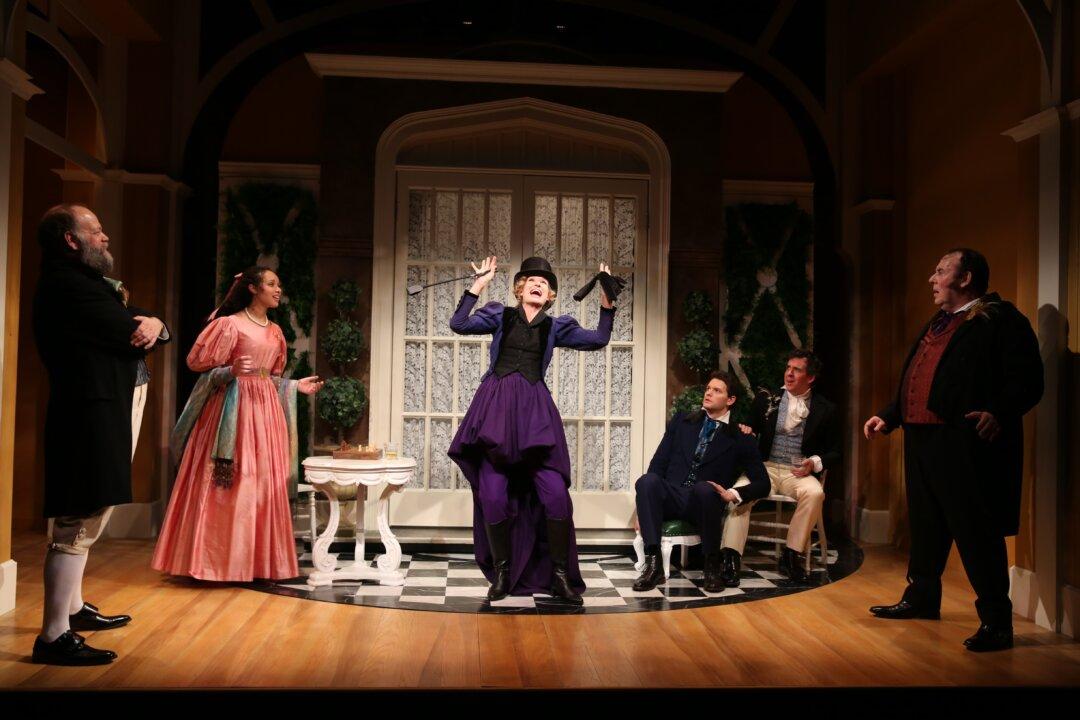NEW YORK—The sin of pride leads to more than a few comeuppances in Dion Boucicault’s 19th-century farce “London Assurance.” This chestnut of a show is currently being revived by the Irish Repertory Theatre.
In 1841 London, the wealthy and widowed Sir Harcourt Courtly (Colin McPhillamy) is a poster boy for denial. With thinning hair, being somewhat corpulent in stature, and 63 years of age, he nonetheless sees himself as an attractive ladies’ man; he does not admit to being over the age of 40 “next March.” This is despite the fact that he has a 25-year-old son, Charles (Ian Holcomb), who supposedly is a quiet and studious sort.





